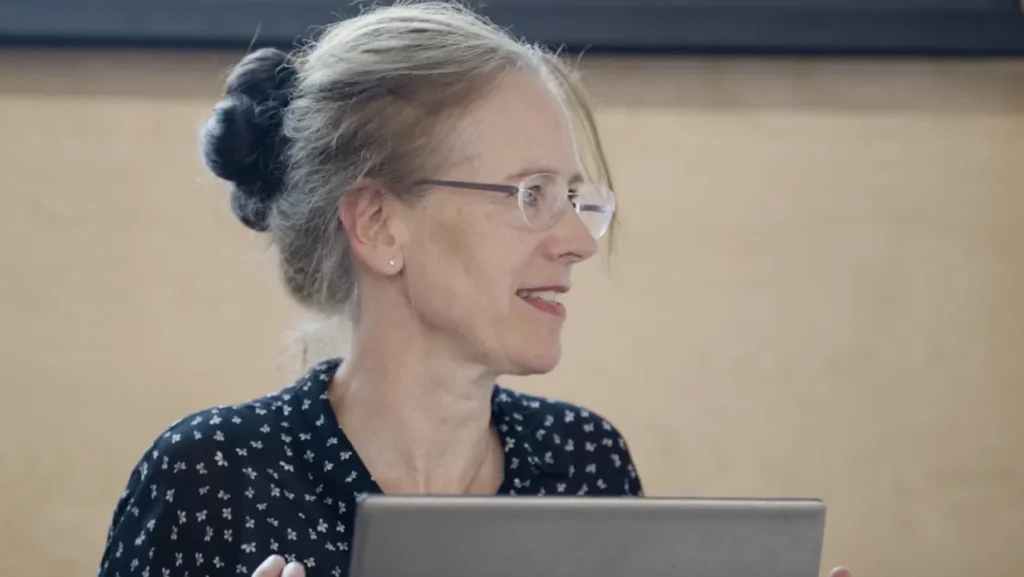Could you love a city? I don’t mean love living in a city; I mean love a city like you love anther person. Could you hate it in the same way? There is do doubt that we are capable of projecting these emotions onto a city as if it was a living thing—the passion people already show when speaking about particular cities is clear—but what if it was a living thing? Moreover, what if it was both living and conscious? What kind of relationship would you want with a conscious city?
We should start by considering a few key concepts for the sake of coherence. I will leave the question of ‘living’ aside, for it seems that the nature of the relationship between a city and its citizens would be far more sensitive to the kind of consciousness the city held rather than to esoteric definitions of life. While we can postulate many kinds of consciousness, I’ll first address a few related issues to explore how cities and we may engage in the future.
Communication
We like to think of consciousness as the kind of thing we have. There is something, as the philosopher Thomas Nagel said, that it is like to be us. We are therefore naturally inclined to think that we know what it would be like to be other consciousness entities. It is entirely possible, however, that there may exist conscious entities, now or in the future, whose conscious experiences are not at all like our own. In these cases, we may not even recognise each other, or have a way to communicate through common language or experiences.
This is perhaps not too far fetched an idea. Consider the octopus, a reasonably intelligent invertebrate that shared a common ancestor with humans over 500 million years ago. This vast evolutionary divergence suggests that our intelligences may have evolved quite separately, and hence may be very different in nature. This difference is also reflected in brain structure, with the octopus having much of its ‘brain’ distributed through its tentacles. What consciousness, such as it may be, is like for an octopus may be impossible for a human to imagine, and may not even be unified in the way our consciousness seems to be (Descartes famously saw the mind as indivisible in character).
But this kind of distributed neuronal network would seem to be characteristic of a city’s consciousness as well. Nodes of information processing that would be endemic to a modern city suggest the value of local as well as centralised processing for things such as regulation of transport and communicating with individuals in homes. It might be a stretch to say, therefore, that the consciousness of a city would be like our own.
The obvious implication of mismatching consciousness experiences is a suboptimal communication. Shared experiences and shared goals make up a large part of the nature of language and communication, and while it is coherent to imagine that something like an algorithm for traffic management could be understood by a range of conscious entities, the purposes for having them and how they might be modified according to more subtle needs might not be so universally understood.
Intelligence
Artificial intelligence has not always implied consciousness in our technological speculation or in our fiction, and the use of ‘artificial’ in the term could imply intelligence decoupled from consciousness as much as intelligence synthetically derived. Though an intelligent city may not be conscious, it is difficult to imagine that a conscious city would not be intelligent. This is because the very substrate of a city’s consciousness would presumably be integrated with, or even the same as, the command and control mechanisms required for operational effectiveness. The technology of traffic control and information management would be the same technology of thought and decision making. The cognitive demands of these operational processes would seem incommensurate with a lesser intelligence. So we can be confident that whatever relationship we individually develop to a city, it would be at the least as cognitive equals and not like the one between, say, me and my dog. Having said that, of course, it is entirely possible that the city could see the relationship that way.
In Iain Banks’ Culture series, the minds controlling the space habitats for billions of people are many orders of magnitude more intelligent than the humans they house and provide for. Human (and other) citizens of this time seem to have an amiable, though sometimes distant, individual relationship with them. The minds seem quite fond of their charges, taking it a point of pride with each other that humans would choose to live in their particular habitats, and do not attempt to influence or control them in overt ways. But it is not hard to imagine the power they would have over humans by virtue of their intelligence and the capabilities that intelligence gives them if they chose to exercise it.
The minds of the Culture provide a pleasant model for contemplating our own relationships to cities, though the contingencies of that model are legion. It is not hard to imagine a large number of alternative relationships between humans and a vastly superior consciousness, but there seem no solid reason to think a benign one is the default.
The question of what kind of relationship humans might have with an intelligent city can be informed by considering how these intelligences might consider their relationship with us.
Caring
It is a curious phenomenon that a newborn consciousness is often portrayed in fiction as child-like. This mirrors a few deeply rooted cultural norms, including that the young are innocent and that a lack of experience with the world equates to a lack of potential to be corrupted by it. This implies that we are born or made pure and arc away from this as we engage with the world. If we think this is so, then we might logically be seriously suspicious of a consciousness, such as a city might have, that is far more experienced in dealing with others than we are.
But there is really nothing to justify this privileged view of innocence as applied to artificial consciousness. If innocence is just the absence of wrongdoing then it is definitional that the inexperienced are innocent. If it is about character, however, then presumably we can be made in all sorts of ways from them beginning.
There is no shortage of fictional intelligences that are born bad, and there is no logical reason that consciousness implies caring, although let me qualify that a little. It seems caring in some sense should be constitutional of consciousness and that a conscious entity should therefore care. Care here is understood as establishing intent and having the motivation and direction to act and see that intent realised. In that sense, we care about a lot of things, such as food acquisition, job satisfaction, protecting our families, and so on. A conscious city would therefore care about something, but that does not mean it would care about us. That does not in turn imply that it must see us negatively, only that our concerns need not be its concerns. These concerns may coincide, and perhaps that will be a key element of design on our part, but we should not confuse correlation with causation, and we should not assume that concerns that are correlated at present would be correlated in the future.
Perhaps we should be more focused on how a city might be compassionate, that there is an active concern on its part for our wellbeing, rather than for the predefined operational success of the instruments of city function. But can compassion be planned and implemented?
Design
There was a time when the development of a city was seen as an organic thing, with a number of inevitable outcomes including population and industrial distribution. This thinking has been replaced with recognition of the need for strategic planning, and it seems sensible that this planning should extend into planning for the nature of the consciousness we would want our cities to have. There are, however, no precedents for this, nor are their broadly understood principles that we can apply as we think about what it could mean to design such an end.
The last thing we should want, for reasons discussed above, is for a city to organically grow its own consciousness. But how else could one be grown? There is a naïve view that as a city cedes more and more of its control and management over to machine intelligence, a level of complexity will be reached in which quantitative differences in information processing will lead to qualitative differences such as consciousness. Even if this were to be true, increasing information-processing capacity in the hope of attaining consciousness is not planning, it is more like poking something with a stick to see how it reacts. The assumptions in both cases that all will be well once it happens are equally invalid.
Pseudo-consciousness
So why shoot for consciousness? What is the advantage of a fully conscious city? Might we not be better of with something we might call ‘pseudo-consciousness’? Consider what we want from a city of the future, conscious or not. First, we would want the intelligence to be highly distributed rather than centralised. Not only does this increase the robustness of the system, but it also improves processing speed and local response time. This is of course a current characteristic of the Internet. Second, we would want the intelligence to be operationally focused. It would be counterproductive if the system in charge of all aspects of the city felt like taking mental health days. The prime motivation would need to be the running of the city for the benefit of its citizens. Third, the intelligence should be predictive, anticipating problems and potential solutions before they happened rather than being purely reactive. Forth, like our own brains, we would need the intelligence to be plastic, allowing for a heuristic approach to learning and enabling the system to be self-adaptive to some degree. Fifth, there should be some aspect of executive control to coordinate these resources and preference their use, and perhaps it’s here that we see where some level of pseudo-conscious control can be approximated if not achieved. We really just need enough of the last to get the job done, not to blossom into full consciousness.
In humans, the pre-frontal cortex (PFC) seems responsible for executive function, and it seems it may have something to do with consciousness, but lots of animals have a PFC. It is therefore not necessary to have executive control only with human level consciousness. The argument of how correlated executive control is with consciousness has not been decided, but there is nothing to indicate that pseudo-consciousness might not do the job outlined just as well.
It seems much more straightforward to design a city intelligence of the sort discussed with some degree of executive control than to design a conscious one. In the first case, we have no idea what the distinction is, and in the second case the outcomes are far more predictable in the former than in the latter. Not only that, we can integrate all aspects of city planning more readily into a system that is not going to disagree with us.
It is also arguable that if we do develop conscious machines, we may be better off physically separating them from our city intelligences, since there seems no logical reason why a fully conscious system would be any better at optimise a city for the human experience than a pseudo-conscious system. While the conscious city may not understand what it takes for humans to flourish, at least a pseudo-conscious city would have the advantage of simply doing it as instructed.
A reasonable counterargument to this is that humans are notorious for making very bad decisions on epic scales, and so a conscious city, with the correct intent and an ability to work effectively with data and probability theory, could make far better decisions than we ever could.
So why not seek an intermediate stage of development in the move towards a conscious city—a pseudo-conscious stage that would allow us to edge closer to full consciousness with the hope of more control over the final product?
We may not grow to love a pseudo-conscious city like we could a conscious one, but the chances are better for one developed through a controlled process. Eugenics in the service of conscious cities? I hope so.










